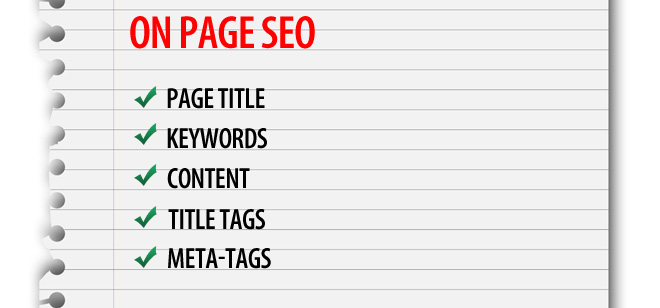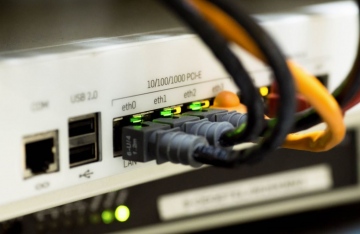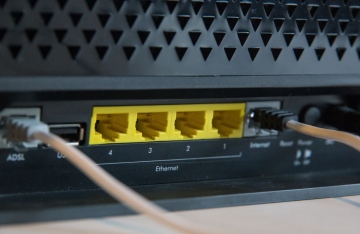SEO stands for Search Engine Optimization, which basically involves two aspects- site building and applying strategies to boost internet search results across various search platforms such as Google, Yahoo, Bing! Etc. A higher SERP means more traffic for your page or website.
On Page SEO includes all the techniques you can apply ON your page, like titles, meta tags and descriptions, and not using the Off Page techniques like social networks, blogging etc.
Following are the ways in which you can do an effective On- Page Search Engine Optimization:
Go for SEO Friendly URLs
The SEO friendly URLs are basically the ones which are straightforward, meaningful and are created with emphasis on right URLs. It means that there must not be any confusing redirects on the site, they can have keywords in them; not the prattling numbers and unnecessary punctuation marks.
Moreover, they consolidating both WWW and non-WWW versions as few back links which you have inserted might point to the WWW version while the others to the non-WWW version. You can create an XML map, avoid dynamic and relative URLs, and shut down the irrelevant pages using robots.txt in order to achieve excellent results.
Insert Keywords in the Title Itself
It is always advisable to use the keywords in the main titles on the web page, URL and the body content. Further, when the Site Navigation Link Text, In-Content Link Text, Image Tags and Meta Descriptions contain the targeted keywords the results are visible much earlier than the proposed time.
Insert Multimedia to Reduce the Bounce Rate
In simple words, the bounce rate simple shows – at what rate the visitors of your website find the entrance page useful. A very high bounce rate is not favorable for effective SEO.
Moderately Use the Outbound Links
Not just the back links, but the outbound links when inserted on your webpage do a commendable job to get effective results of the SEO. These links get you targeted visitors and give the search engine a clear idea about your website or blog. Keep in mind, to not insert too many links and the ones which are inserted must be of a reliable source to increase your credibility.
Insert Keywords in the Text. Preferably, the first 100 Words
Inserting the keywords in the first 100 words of the text will give you flattering results as the text read by the search engine appears instantly.
Know your Website’s Code to make sure the Assigned Title gets the H1 tag
The H1 tag is the headline tag of your web page. Many blog websites automatically add the H1 tag but not all of them. When you know your website’s code, you add it immediately.
Enhance the Loading Speed
A webpage loading speed is the main key. The faster it loads, the popular it’ll get. We all are aware of the fact that no one would want to visit a website which is slow and irritating for the visitors.
Addition of Modifiers
Modifiers are the words like Best, Review, Latest, Some, Define etc which provides you with long lasting results for the keyword you have targeted.
Use Social Sharing Buttons whenever possible
The revolutionary Social Sharing Buttons are an added advantage. Surveys and effective work reports have proved that they enhance the popularity and ranking of a page upto 100% – 700% approx.
Post Lengthy and Superior Quality Content
The content written on any web page plays a major role. Higher is the quality of content, better are the results that you achieve. Search engines give preference to the quality content.
Add Link and Invest in a Clean Site Design to Drop the Bounce Rate
The Bounce Rate is the rate at which users find your web page of inefficient to fulfill their needs. It is determined by how quickly the visitors close the webpage.
Use Latent Semantic Indexing(LSI) Frequently
LSI keywords are the keywords by which search engines determine a page’s relevancy and check quality of the content. Dropping them here and there on your webpage will enhance the results.




